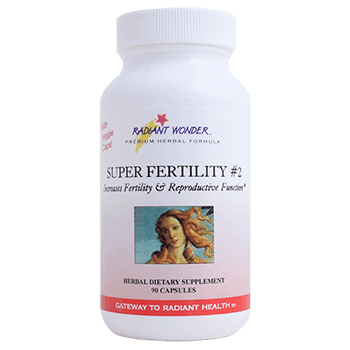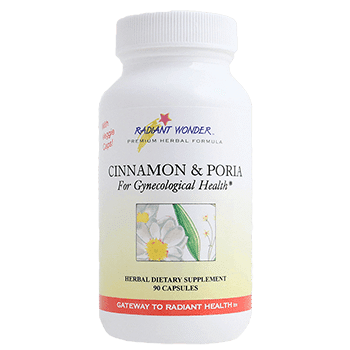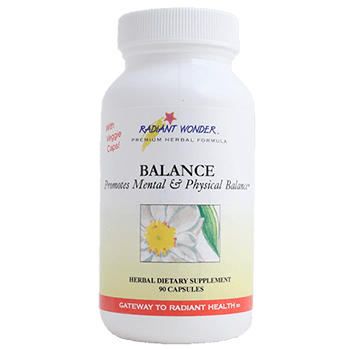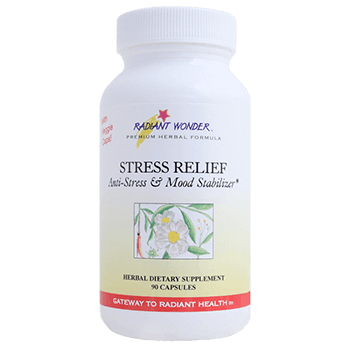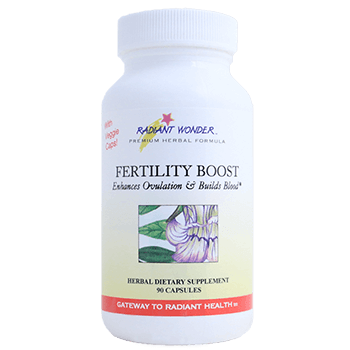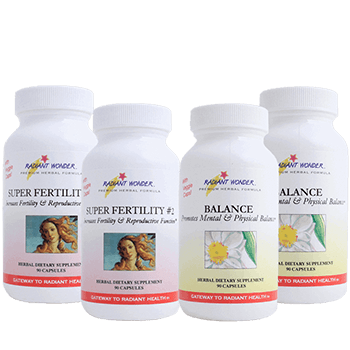We’re going to take a look at why vegetables are so important in your diet – and see how many people are eating enough…
We’ll explain the massive health benefits juicing can have as we go along. As a bonus, we have 10 Handy Tips on juicing, how to store your juice, and the do’s and don’ts of juicing.
Why Traditional Chinese Medicine Loves Vegetables
For thousands of years, the Chinese have understood the importance of good nutrition and the part it plays in health. Vegetables are one of the healthiest foods and the most necessary for our bodies to function at their best. ,Adding vegetable juice to the diet gives your body a chance to grab all of the nutrients it can – and quickly! This will help to build nutritionally enriched blood. If you’re trying to conceive, this is very important for increasing your fertility and your chances of having a healthy pregnancy and a healthy baby.
We recommend 6 oz of juice with 2 oz of water once a day, or at least 3 times a week.
How to Make Vegetable Juice
Get yourself a juicing machine and choose a recipe that appeals to you. Have fun pushing your washed and sliced veggies into the machine and watch the juice pour out into your glass. Get a machine that rinses clean under the tap. Check out customer reviews before buying to avoid relegating your machine to the back of a cupboard.
10 Reasons Why it’s Important to Have Vegetables
1. Vegetables Help Your Body to Get Rid Of Toxins
Vegetables are full of fibrous cellulose. This performs 3 important functions –
- It scrubs your intestines
- Provides bulk for your stool
- Binds toxins so that they can be eliminated from your body
Without enough cellulose in your digestive tract, the elimination of toxins is not performed properly, which can lead to health issues.
2. Vegetables Help your Body to Eliminate Cholesterol and Lower your Risk of Heart Disease
Cholesterol and other toxins are attached to bile in your liver. Vegetable cellulose attaches to the bile and eliminates it from your body in your stool. If you don’t have enough vegetables in your diet, you won’t have enough vegetable cellulose to perform this vital function.
The result? Up to 94% of the bile (with cholesterol and toxins attached to it) is reabsorbed by your liver and your blood. This reabsorption raises your cholesterol and increases your risk of cardiovascular disease.
In Traditional Chinese Medicine, cholesterol is usually associated with the dysfunction of the Gut and Liver. Poor lifestyle and diet may cause problems with efficient digestion and this may increase the amount of cholesterol in the body and cause disruptions to these organs.
3. Veggies Can Stop your Cholesterol ‘Turning Bad’
Most Americans know that heart disease is the number one health threat and get their cholesterol tested regularly to screen for heart disease. So you probably know that cholesterol is good or bad – but how does this happen?
‘Bad’ cholesterol is the one connected with heart disease. The medical name for this ‘bad’ cholesterol is low-density lipoprotein, or LDL. (The ‘good’ cholesterol is high-density lipoprotein, or HDL.)
Cholesterol becomes ‘bad’ through the process of oxidation but the good news is that vegetables can help you to neutralize that process. You may have heard of antioxidants – which prevent oxidation. Oxidation causes free radicals, which can lead to all kinds of disease and health issues. Vegetables have the highest levels of antioxidants, so they are essential in your daily diet. If you don’t have enough vegetables, the levels of antioxidant in your body will plummet and this low level will allow fats in your blood to oxidize and become ‘bad’ cholesterol. Drinking vegetable juice regularly can prevent this from happening.
4. Juicing for Health and Weight Loss
Most of us are familiar with that energy drop after lunch that makes you feel lethargic and sleepy. This is because many lunches are high in sugar, which makes your blood sugar level spike and then drop again – causing that slump. Swap your usual lunch for a veggie smoothie and you’ll feel the difference.
5. Vegetables Can Balance your Body’s Acidity/Alkalinity
Most nutritional experts agree that for optimal health, our diets should be:
-1/3 acidic
-2/3 alkaline
The natural cycles of the seasons also provide us with this balance.
Winter foods: high in grains and meat – mostly acidic
Spring and Summer foods: vegetables (and fruits) – mostly alkaline. These help your body to cleanse and detoxify after the acidic fares of winter.
We recommend a diet of 70-80% cooked vegetables for a few days. This will slowly build up your body’s alkaline reserve and help your body to eliminate some of the toxic metals and chemicals that may be contributing to the acidity.
6. Vegetables can Help you to Break your Sweet/Salty Addiction
So many of our foods are processed and full of additives so it’s not surprising that many people become addicted to sweet and salty foods. This happens because those strong tastes stimulate the production of dopamine in the brain. Unfortunately, dopamine is a ‘diminishing’ hormone. That means that the more you stimulate it with strong tastes, the more it takes to keep it stimulated. So, like any addiction, you need more and more to produce the same result. The good news is that vegetables can help you to break that addiction. The more vegetables you have, the more your body will enjoy the naturally sweet taste of the complex sugars. As previously mentioned, you will lose that post-sugar slump and be eating a much healthier diet.
7. Vegetables Give your Body the Vitamins that it Doesn’t Make
Your body isn’t able to make all of the vitamins that it needs. Vitamins that dissolve in water cannot be stored in your body, so you need to give it a helping hand and add them to your daily diet. If this doesn’t happen, your body may become vitamin deficient, which can cause poor health and a lack of vitality.
8. Vegetables – the Best Source of Minerals that You Need
Vegetables are our main source of minerals. They are especially helpful if you have issues with dairy, because green leafy veggies are a great source of calcium. Our mineral deficiencies are nothing new. In 1936, the Department of Agriculture published a report stating – “99% of the American people are deficient in minerals, and a marked deficiency in any one of the more important minerals actually results in disease.” The report went on to say that “virtually all soils in the United States are mineral deficient.”
And it hasn’t got any better. In 2001, The Journal of Complimentary Medicine reported US and UK Government statistics stating that from 1940 to 1991, trace minerals in fruit and vegetables declined by 76%. Minerals are as important as vitamins for your body – so juicing vegetables can help to support your organ systems so that they can work to their full potential. Kale is rich in minerals such as calcium, potassium and iron – so it’s a juicing powerhouse.
9. Vegetables are Natural Probiotics
You may have learned in school that plants need chlorophyll for photosynthesis, but did you know that our bodies need it too? Happily, green vegetables are packed full of chlorophyll.
Chlorophyll aids in the proliferation of good intestinal bacteria, which are essential for:
- Digestion
- Assimilation
- Detoxification
- Intestinal waste removal
Your body needs to be in balance to allow your energy to flow freely. Having good intestinal bacteria improves the performance of many of your body’s systems – so juicing green vegetables can play a positive role in promoting the flow of energy, which is so necessary for good health.
10. Spring Clean Your Body
Deer know a thing or two. As spring arrives and the ground becomes softer, deer dig up roots to eat. These roots – or rhizomes – are surface roots that are bursting with astringents that are able to scrub old mucus out of the gut. They also stimulate purification of the blood and the function of the liver. Copy the Deer and treat yourself to a drink cleanse.
Why Juice?
It’s good to eat raw and cooked vegetables, but freshly juiced vegetables are kinder to your digestive system and help your body to extract the nutrients it needs.
You have many digestive enzymes that break food down into the type of material that your body can use. An enzyme called cellulose breaks down plant fiber. However, humans don’t have that enzyme called cellulose.
Juicing to the rescue! The physical action of juicing smashes those cellulose plant fibers so that your body can digest them easily and quickly access the nutrients it needs.
Vegetables are Good For Fertility
Men can greatly benefit from drinking vegetable juice regularly because the powerful antioxidants it contains can protect the growing sperm cells from free radicals in the environment.
Women will enjoy better quality, better oxygenated blood. Another helpful benefit – increased libido for both of you. Juicing Can Massively Boost your Vegetable Consumption
Did you know that the ideal daily vegetable intake is 1 pound per 50 pounds of body weight? According to the Centers for Disease Control and Prevention, the average American woman weighs 166.2 pounds. That means that the average American woman is advised to eat 3.32 pounds of vegetables every day…Vegetable juicing allows you to come much closer to this ideal, as you can eat more vegetables than you would normally. Finding ways to uptake your intake of vegetables is key to any Radiant Wonder Healthy Living Program.
Making it Work for You – Storage and Taking your Juice to Work
Make sure that you work out a plan that works for you and your schedule. If juicing vegetables doesn’t fit into your daily life, then you’re less likely to keep it up. Can you juice your vegetables early in the day and then drink it later? Yes – as long as you follow a few simple rules.
Vegetable juice is very perishable so the best option is to drink it straight away. The antioxidants in the juiced vegetables are at their most powerful for the first 20 minutes. However, if you’re careful, you can store your juice for up to 24 hours with only moderate nutritional decline.
Put your juice in a glass jar with an airtight lid and fill it to the very top. Aim to have as little air in the jar as possible. This is because around 20 percent of air is oxygen. So any oxygen remaining between the top surface of your juice and the lid could oxidize your juice and damage it.
Wrap the jar with aluminum foil to block out all light. This is necessary because light can damage the juice.
Store your juice in the refrigerator and take it out around 30 minutes before you want to drink it. This will give it time to come up to room temperature.
If you’re planning to add hot water, you can leave it in the fridge until you’re ready to drink it.
Vegetable Juices for Weight Loss
If you’re trying to lose weight, vegetables are your new best friend. They are very low in calories.
It takes your body the same amount of energy to digest vegetables as it gets from them – which is why most types of vegetable are seen as ‘free’ foods for dieters.
Vegetables –
- Are low in calories – 8oz of juiced vegetables averages around 50 calories
- Are low in fat – 95% of all vegetables have less than one gram of fat per serving
- Have NO cholesterol
- Stimulate the breakdown of fat which is already stored in your body and help to burn it for energy
Helpful Hints for Vegetable Juicing
1. Don’t Drink your Vegetable Juice Cold
Traditional Chinese Medicine has promoted the drinking of warm fluids for thousands of years.
The average healthy adult or child has an internal core (body) temperature of 37 degrees Celsius. Drinking very hot fluids can cause immediate distress – as you’ll know if you’ve ever burnt your tongue with hot soup.
Drinking very cold fluids doesn’t cause immediate distress, but according to TCM, it can cause damage that may take years to show up. Drinking fluids colder than body temperature can damage the metabolism and the digestive system. If left unchecked, it can then go on to damage other systems.
We recommend adding enough hot water to your juice to make it warm or a comfortable heat. In the winter, you can warm your juice gently in a pan or by add warming herbs such as Fennel or Ginger.
2. Be Careful When Adding Fruit to your Vegetables
Most juicing recipes contain at least one fruit. This is because fruit is full of something called fructose, which is a natural sugar. If you take in enough of it, it can throw off your metabolism. If you’re using fruit with your veggies, try to stick with apples, blueberries, and bananas.
3. For Faster, Better Results, Juice Dark Green Leafy Vegetables
Green leafy vegetables are a favorite with people who juice. They can:
- Build richer blood
- Give you more energy
- Help you to lose weight in a safe and healthy way
- Make your skin beautiful
4. The Best Veggie Juicer is One That’s Easy to Clean
It’s worth repeating this tip because this is so essential to your success as a Juicer. The truth is that most wannabe juicers fall by the wayside because cleanup is so difficult. Make life easy on yourself by reading customer reviews before buying your juicer. If the machine is hard to clean – move on until you find one that is a breeze. Seriously.
5. Go Green
For the best results, buy organic or start your own veggie patch.
6. Clean it and Check it
Wash all your vegetables prior to juicing. Don’t forget that even organic produce has traveled in a truck and been handled by multiple people. While you wash, check your veggies for any bruises or damaged areas and remove them.
7. Juice it All
Get the maximum benefit from your veggies by juicing everything – and that includes stems and leaves*. They are packed with nutrients and great for alkalinity.
*An exception to this is the green tops on carrots, as these are toxic, so discard them.
8. Avoid Juicer Rage…
Even when you’re in a hurry, take the extra few minutes to chop your vegetables small enough to fit into the mouth of your juicer. Trying to push in pieces that are too big will make a mess, slow you down, and make you crazy.
9. For the Best Digestion…
…drink your veg juice on an empty stomach. This will help your body to absorb the nutrients. Chew your juice where necessary to aid digestion.
10. Don’t Skip Meals
Vegetable juice is highly nutritious and delicious and it’s perfect for a short-term cleanse or detox. However, it’s not designed to be used as a long-term meal replacement. For long term use, add it to your daily intake as an extra. You’ll be giving your body extra nutrients that it doesn’t get from your usual meals.
It’s virtually calorie-free so all you will gain is tons of nutrients and enhanced health.
Bonus Tip
Like most things, juicing takes some getting used to. At first, you may feel slow and clumsy when you use the juicer and you may not love the taste right away. Stick with it. The effects of juicing are cumulative, but within only a few days you will start to feel lighter and brighter with more energy. You’ll sleep better and your skin will glow.
Enjoy!
Leave Us a Comment
We’d love to hear how you get on with juicing! Do you have any favorite recipes you’d like to share? And tell us about the health benefits you have found – they may inspire others to give vegetable juicing a try.
References:
1. U.S. Department of Health and Human Services and U.S. Department of Agriculture. 2015 – 2020 Dietary Guidelines for Americans. 8th Edition. December 2015.
Available at https://health.gov/our-work/food-nutrition/2015-2020-dietary-guidelines/guidelines/
Retrieved 19/04/2016


